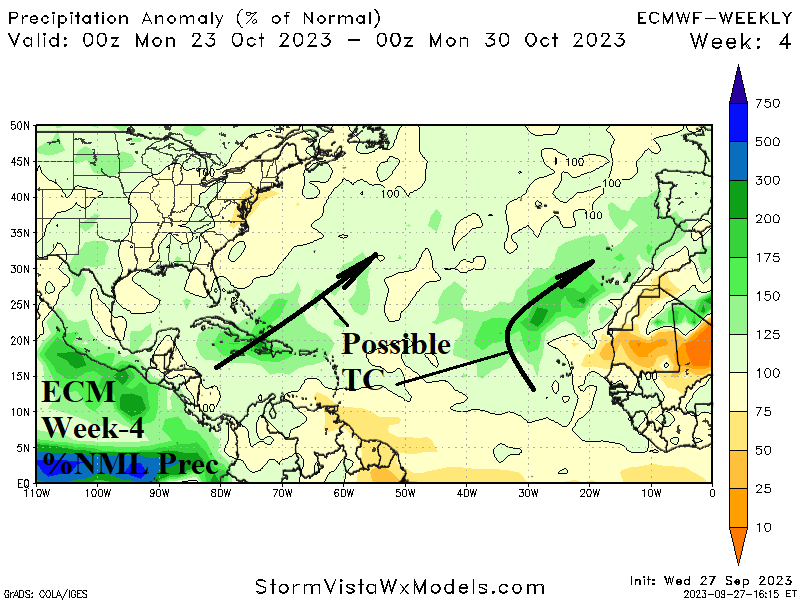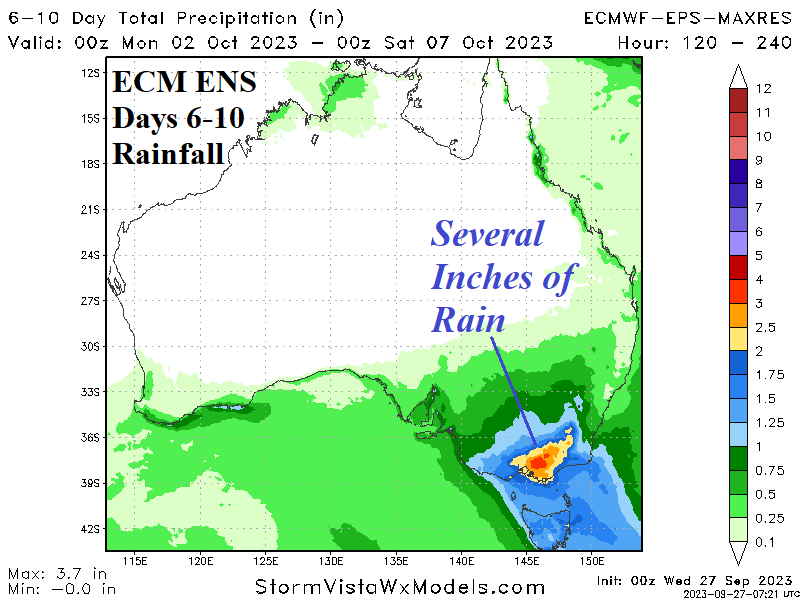
Australia Pattern Change Ahead
09/27/2023, 7:46 am EDT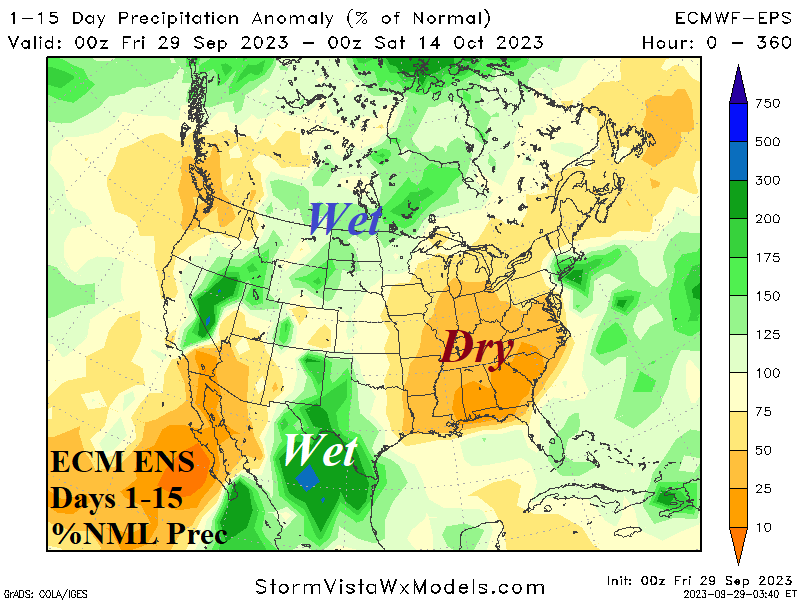
Low Water on The Mississippi River Worsening
09/29/2023, 5:09 am EDTTable of the day: Activity so far this year.
| Tropical Cyclones (Normal) | Hurricanes (Normal) | Intense Hurricanes (Normal) | ACE Index (Normal) | |
| September 28 | 17 (10.7) | 6 (5.0) | 3 (2.3) | 121.2 (91.7) |
| CIC 8/2/23 Forecast | 17 | 6 | 2 | 114 |
Discussion: As of today, the North Atlantic basin tropical cyclone activity is above normal featuring 17 tropical storms, 6 hurricanes, and 3 intense hurricanes (Table 1). On August 2nd, Climate Impact Company updated the seasonal forecast cutting back on activity due to an expected slow ending to the season due to increased westerly shear driven by an evolving El Nino climate. While additional tropical cyclones are likely in October, intensity of storms may be held back and the 6 hurricanes/3 major hurricane tallies stall.
Week-2 Valid October 10-16, 2023: Possible TC risk north of Hispaniola.
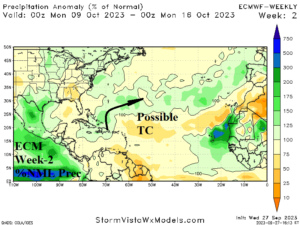
Discussion: Heavy rain shifts off the Northwest Africa coast although tropical cyclone development is not expected. A weak risk of tropical cyclone formation is indicated north of Hispaniola. If so, a northeast turn is likely. Wet weather in Mexico and Texas is not related to tropical cyclone activity.
Week 3 Valid October 17-23, 2023: Possible TC in Bay of Campeche.
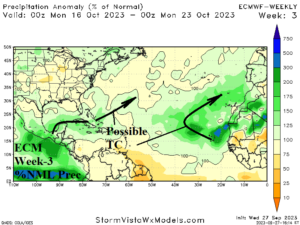
Discussion: Western basin risk increases well into October. There is risk of a tropical system developing in the Bay of Campeche. If so, this system turns east-northeast quickly. A second risk area is in the outer tropics.
Week 4 Valid October 24-30, 2023: Possible TC vicinity of Cuba.
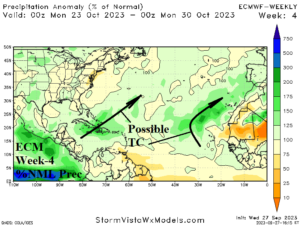
Discussion: Late October brings a tropical cyclone risk to the vicinity of Cuba and the outer tropics. Any system that forms will drift northeastward.
Week 5 Valid October 31-November 6, 2023: Chance of a late season event that could reach Florida.
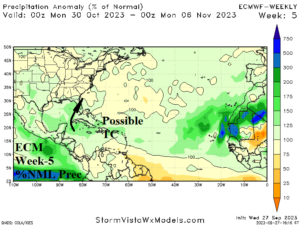
Discussion: November is usually absent of tropical cyclones. However, due to lingering warmer than normal ocean water, there is risk of a late season event from northwest Caribbean Sea toward Florida.
![Climate-Impact-Company-logo-sm[1]](https://climateimpactcompany.com/wp-content/uploads/2023/08/Climate-Impact-Company-logo-sm1.png)
